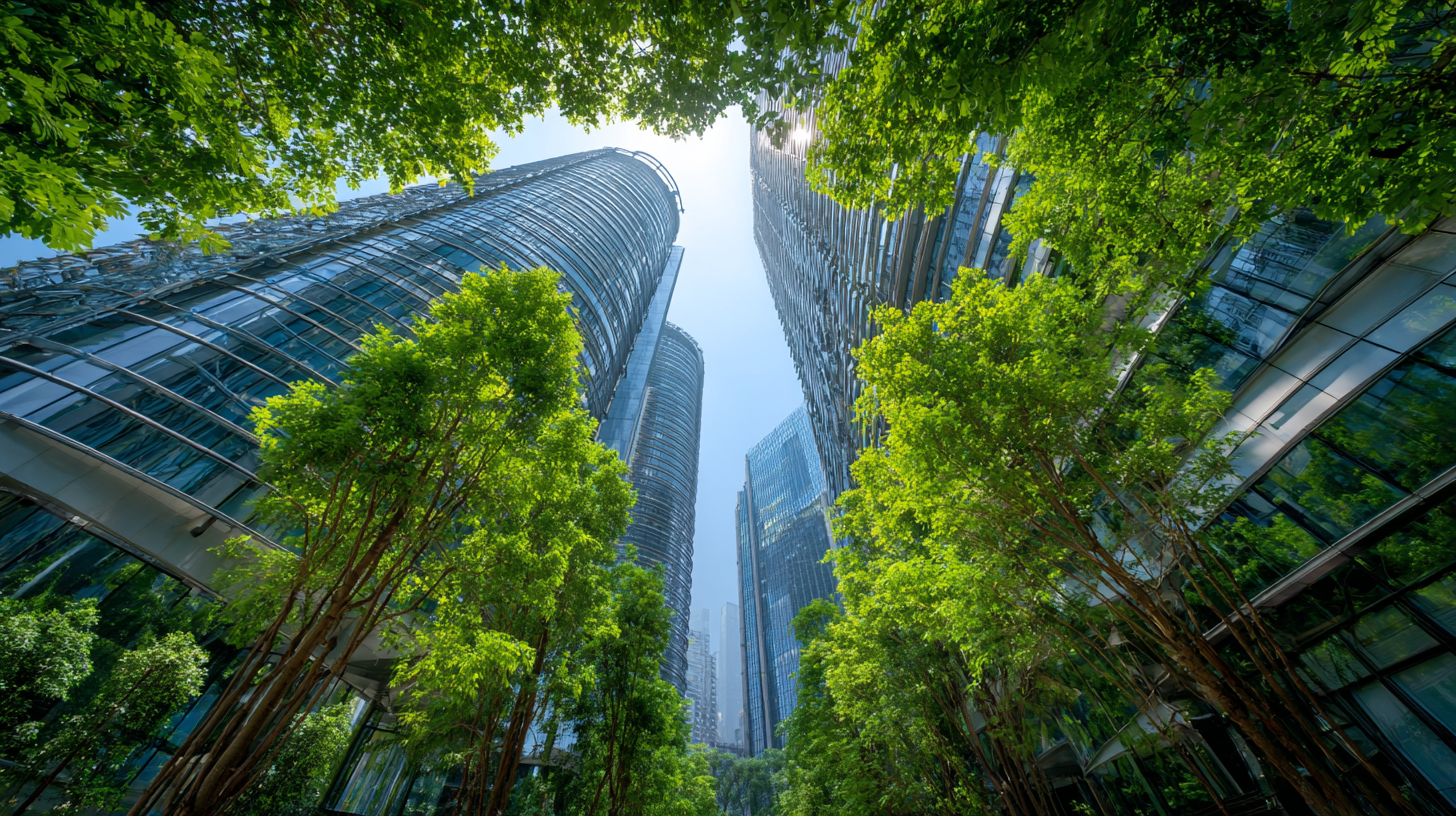Natural beauty for your favorite space
Challenges Faced by Global Buyers in Sourcing the Best Sustainable Building Products
In recent years, the construction industry has increasingly turned towards Sustainable Building Products, driven by a growing awareness of environmental impacts and regulatory demands. According to a report from Research and Markets, the global sustainable building materials market is projected to reach $1 trillion by 2027, expanding at a CAGR of 10.3% from 2020.

Despite this promising growth, global buyers face significant challenges in sourcing these products, including complexities in import and export certification processes. The lack of standardized certifications across different regions complicates compliance, as buyers must navigate varying regulations and quality standards. Furthermore, the disparity in sustainable product definitions can lead to confusion, affecting procurement decisions.
As the demand for eco-friendly construction materials continues to rise, understanding and overcoming these sourcing obstacles is more critical than ever for the advancement of sustainable practices in the building industry.
Understanding the Importance of Sustainability in Building Products
Sustainability in building products has become an essential consideration for global buyers, as the construction industry faces increasing scrutiny regarding its environmental impact. The importance of sustainability extends beyond just adhering to regulations; it encapsulates the commitment to creating healthier living spaces and minimizing the carbon footprint. Sustainable building products often use renewable resources, reduce waste, and promote energy efficiency, which not only contribute to a healthier planet but also enhance the quality of life for occupants.
In today’s market, consumers are more informed and demand transparency about the sustainability of the materials used in their projects. This shift in mindset compels manufacturers to innovate and adopt eco-friendly practices, making it critical for buyers to understand the certifications and standards associated with sustainable products. However, the challenge lies in navigating the complex landscape of available options, ensuring that products are genuinely sustainable rather than simply marketed as such. By prioritizing sustainability, global buyers are not only investing in the future of their projects but also playing a vital role in fostering a sustainable economy in the construction sector.
Identifying Key Challenges in Global Sourcing for Sustainable Materials
In the quest for sustainable building materials, global buyers face a myriad of challenges that complicate the sourcing process. The market for on-demand production, valued at $8.03 billion in 2023, is projected to grow to $9.79 billion in 2024 and potentially reach $47.14 billion by 2031, reflecting a compound annual growth rate (CAGR) of 25.18%. This rapid expansion underscores the increasing demand for sustainable options, yet the journey towards sustainability is fraught with obstacles.
Key issues such as geopolitical tensions and the ongoing complexities of the global pandemic have introduced significant uncertainties into supply chains. The critical need for stable sourcing is further aggravated by labor practices within the fashion industry, which often involve harsh working conditions and other non-compliance issues that tarnish the sustainability narrative. As companies invest heavily in transitioning their supply chains towards more regenerative practices, such as Nestlé's commitment to a net-zero carbon footprint by 2050 alongside a $1.2 billion investment, the challenges of sourcing the best sustainable materials continue to be an impediment that requires proactive strategies and collaboration across the industry.

Evaluating the Impact of Certifications on Sustainable Product Choices
When evaluating sustainable building products, certifications play a critical role in guiding global buyers towards making informed purchasing decisions. According to a 2021 report by the Global Sustainability Institute, nearly 70% of construction professionals consider product certifications as a significant factor in their procurement process. This reliance underscores the importance of trustworthy labeling, as buyers seek to navigate the crowded marketplace of green products. In this context, certifications such as LEED, BREEAM, and Cradle to Cradle have become essential benchmarks, influencing consumer perceptions and driving demand for verified sustainable products.
Moreover, the impact of certifications extends beyond mere consumer choice; it also shapes supplier practices. A report from the International Institute for Sustainable Development indicates that 85% of manufacturers are increasingly adopting sustainable practices in response to the rising demand for certified products. This shift not only enhances the credibility of the products but also fosters a competitive environment where environmentally-friendly innovations can thrive. As global buyers continue to prioritize sustainability, the role of certifications will remain crucial in guiding their decisions and promoting accountability within the industry.
Exploring Innovative Solutions for Overcoming Sourcing Barriers
Sourcing sustainable building products presents numerous challenges for global buyers, particularly as environmental considerations continue to gain prominence in construction practices. According to a 2021 report by the World Green Building Council, approximately 39% of global carbon emissions stem from the built environment. This statistic underscores the urgent need for sustainable sourcing. However, buyers face significant barriers such as limited availability of certified products, varying regulations across regions, and the difficulty in assessing the sustainability credentials of suppliers. A 2022 McKinsey report estimated that only 15% of organizations have a clear understanding of their supply chain’s environmental impact, suggesting a substantial gap in transparency that complicates sourcing efforts.
Innovative solutions are emerging to address these barriers and support buyers in making informed choices. For instance, digital platforms are increasingly being utilized to connect suppliers of sustainable building products with construction firms. According to a study by BSR, 61% of businesses have integrated technology to improve their sustainable sourcing practices. Furthermore, collaborative purchasing initiatives are enabling smaller companies to leverage collective buying power to access certified sustainable materials, which can significantly reduce costs and improve procurement efficiency. These strategies not only enhance access to sustainable products but also foster a more resilient supply chain, driving the entire industry toward a greener future.
The Role of Technology in Enhancing Sustainable Procurement Practices
The push for sustainable construction has led global buyers to seek out the best sustainable building products, yet navigating this complex landscape presents notable challenges. One major solution lies in the adoption of advanced technologies that enhance sustainable procurement practices. According to a McKinsey report, companies that leverage digital tools in sourcing can improve their procurement efficiency by up to 30%, allowing them to identify and evaluate sustainable options more effectively.

Moreover, the integration of data analytics and artificial intelligence is transforming how buyers assess sustainability criteria. A study from the World Economic Forum highlights that 70% of procurement professionals believe technology could significantly surface innovative sustainable products that are often overlooked. By utilizing platforms that aggregate information on sustainability certifications and environmental impacts, buyers can make more informed decisions, fostering a more sustainable supply chain.
These technological advancements not only streamline the sourcing process but also help in tracking the long-term impact of sourced materials on the environment, ensuring compliance with increasingly stringent sustainability standards.
